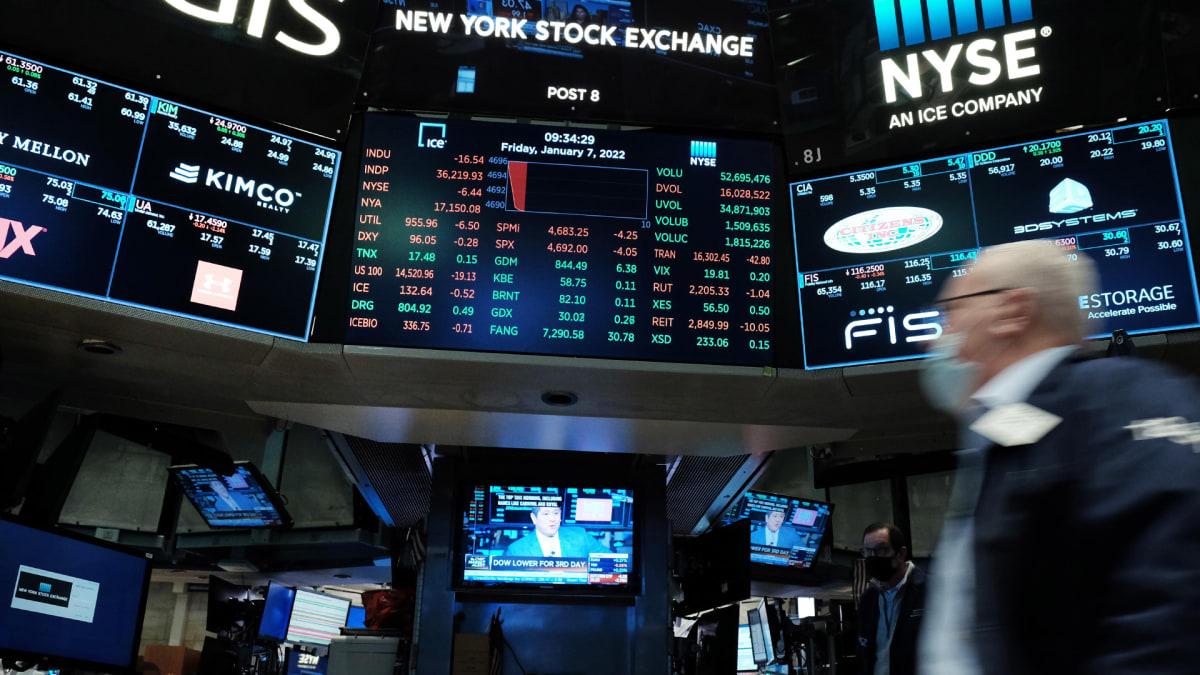
U.S. stocks closed mixed Friday, in thin pre-market volumes, as investors eyed sharp movements in the U.S. dollar, and the start to the holiday shopping season, amid renewed bets on a softer stance on rate hikes from the Federal Reserve.
Minutes from the Fed's early November policy meeting, released late Wednesday, showed a clear bias for smaller increases in the Fed Funds rate going forward as officials look to both monitor their impact on the broader economy and avoid dislocation in financial markets.
The tone of the minutes, alongside data suggesting inflation in the world's largest economy has likely peaked, has clipped bets on a 75 basis point rate hike next month in Washington to just under 25%, while taking the U.S. dollar index to a three-month low of 105.878 in overnight trading before rising to 106.014 in New York trading.
Benchmark Treasury bond yields are also in retreat, with 2-year note yields easing to 4.517% and 10-year notes trading as low as 3.65% in the overnight session before rising to 3.744% in early New York hours.
Investors are also tracking signs of consumer strength from early Black Friday shopping, with the National Retail Federation predicting an increase of between 6% and 8% in overall sales for the whole of the holiday period, which lasts to the end of December, to between $942.6 billion and $960.4 billion.
Major retails such as Target (TGT), Walmart (WMT) and Amazon (AMZN) launched early October sales in an effort to attract shoppers and shift billions in inventory that left over from the summer lull.
However, with shoppers looking to spend less over the whole of the holiday season, experts are predicting a rush back to stores of around 166.3 million people, an 8 million increase over least year, between Thanksgiving Thursday and Cyber Monday.
China's Covid crisis kept a lid on sentiment, however, with daily infections rising to more than 31,000 yesterday, the highest since April 13, triggering new lockdown orders in major cities around the country.
Crude oil prices bounced higher in overnight trading, but are still on pace for their fourth weekly decline, after the collapse of an EU plan to cap the price of Russian crude exports at between $65 and $70 per barrel.
WTI futures for January delivery were marked $1.10 higher at $79.18 per barrel while Brent contracts for the same month added 89 cents to $86.26 per barrel.
By the close of trading on Wall Street, which ended at 1:00 pm Eastern time, the S&P 500 was marked 1 point lower at 4,026.12 points while the Dow Jones Industrial Average gained 152 points to close at 34,347.03 points.
The tech-heavy Nasdaq was down around 58 points from Wednesday's close, dragged down in part by a 2% slide in Apple (AAPL) shares.
Reuters reported Friday that officials at the Foxconn factory in Zhengzhou, which has been beset by both strict Covid restrictions and a series of employee protests over pay and working conditions, likely won't be able to return the iPhone factory to full capacity until at least next month, with November output falling at 'at least' 30% as a result.
Earlier this month, Apple cautioned that Covid restrictions at the 200,000-person plant would curtail shipments of its higher-end iPhones heading into the holiday season in most of its global markets.







